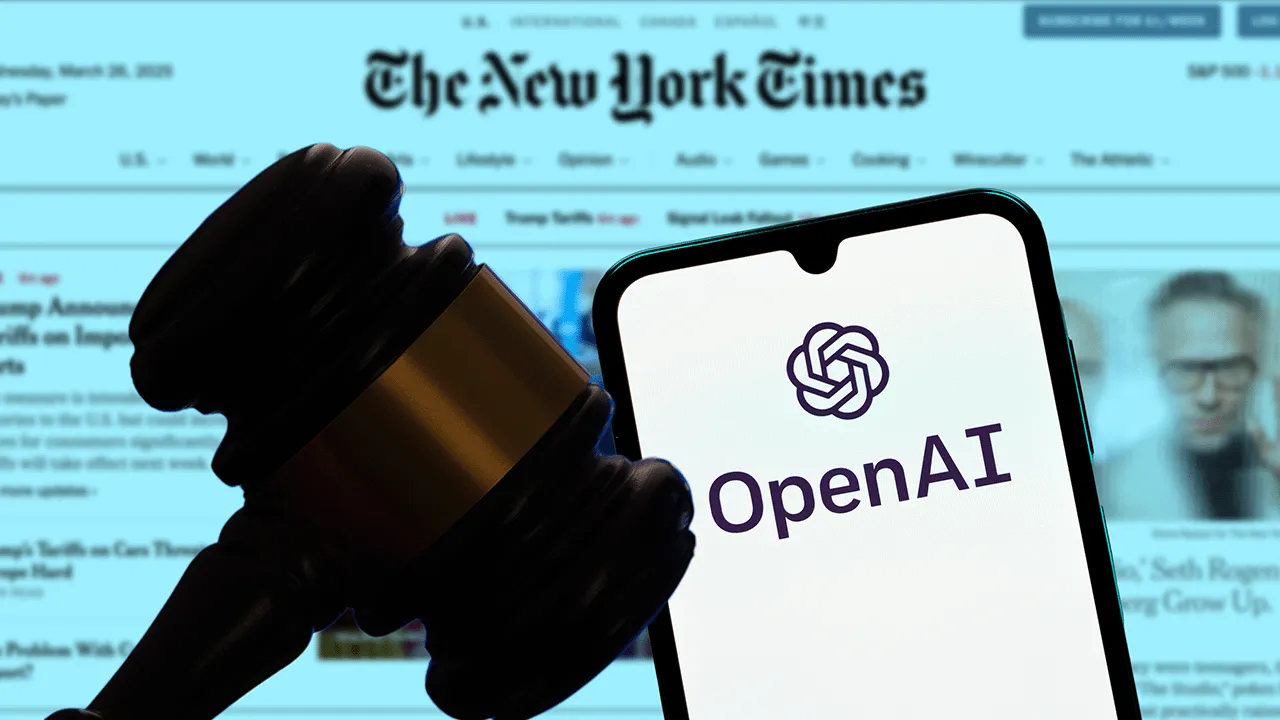Is AI Stealing the News? Major Copyright Battle Moves Forward
A judge has ruled that The New York Times can continue its lawsuit against OpenAI for using its content without permission or payment. OpenAI had asked to dismiss the case, but the judge refused. This case could have a big impact on both the AI industry and the news industry.
What’s the Case About?
The New York Times and other publishers, like The New York Daily News and the Center for Investigative Reporting, they said that OpenAI used their articles to train the ChatGPT model without our permission. Lawyers of The Times said, that OpenAI and Microsoft made a lot of money by using their content without asking.
Judge Sidney Stein from New York said the main copyright claims in the lawsuit can continue, but he reduced the case’s scope. He hasn’t given a full explanation yet but promised to do so soon.
Why Is This a Big Deal?
This lawsuit could affect how AI is developed and how copyright laws work. News companies worry that AI tools like ChatGPT can quickly summarize news, which might mean fewer people visit their websites. This could hurt their ad money and overall business. If AI gives people the main points of an article without linking to the original, news websites might lose readers and struggle to make money from ads and subscriptions.
Attorney Steven Lieberman, who represents The Times, was happy with the decision. He said, “We are glad we can show a jury the facts about how OpenAI and Microsoft are making huge profits by using newspaper content without permission.”
OpenAI says its AI model is trained on public data and follows the “fair use” rule. This rule allows limited use of copyrighted content for things like research, teaching, and comments. But fair use is a tricky and changing topic, and this case might set new rules for AI.
The Fair Use Debate
The legal case depends on whether OpenAI’s use of news articles is considered “fair use.” Courts say that to be fair use, the new content must change the original in a meaningful way, not just copy it. The big question here is whether ChatGPT’s answers really add something new or just repeat what’s already written.
The New York Times argues that OpenAI’s chatbot does not transform its content but instead reproduces it verbatim, sometimes pulling direct quotes from articles. OpenAI counters that its AI is not a “document retrieval system” but a large language model that generates responses based on broad training data. The company also claims that The Times’ legal team manipulated prompts to force ChatGPT to output large chunks of text from its website, which is not how typical users interact with the service.
Experts think this case could set a legal example for how AI companies use web data. If the court supports The Times, AI companies may have to make deals with publishers or find new ways to train their AI without using copyrighted content. But if OpenAI wins, it would confirm that using public data for AI training is allowed under fair use.
Implications for the News Industry
This is more than just a legal case—it’s about staying in business for journalists and news companies. Traditional media is already finding it hard to compete online, and AI chatbots make it even tougher. These chatbots can quickly summarize news, so people may not visit the original news websites. This makes it harder for news companies to make money and keep running.
Some publishers believe AI companies should pay them for using their content, just like streaming services pay for music and movies. They suggest AI companies should buy a license to use articles for training. Others worry that if the court rules against The Times, AI models might start using copyrighted content without any rules or limits.
What’s Next?
The trial is getting closer, but no date has been set yet. The next steps are gathering evidence, talking to company leaders, and holding court meetings to sort out legal matters. Experts believe the case will take a long time, and appeals might delay the final decision even more.
Experts in AI, media, and law will share their thoughts on whether OpenAI used news content legally or broke copyright rules. Public hearings will also play a key role, as both sides will present their arguments. The outcome could influence how copyright laws change for AI in the future.
What This Means for AI and Journalism
If The Times wins, AI companies might have to follow stricter rules when training their models. They may need permission from publishers to use their content. This could make AI training more fair and controlled, making sure that content creators get paid for their work.
If OpenAI wins, it could support the idea that using public data to train AI is fair and legal. This would let AI companies keep growing without strict rules. More tech companies might improve their AI without worrying about lawsuits. But this could also cause more problems between AI companies and content creators.
A Legal Battle That Could Shape the Future
The fight between news companies and AI is not over yet. This battle could change who owns digital content in the AI age. News publishers want to protect their work, while AI companies want to keep growing. This case is one of the biggest copyright fights in years. The final decision will not just affect OpenAI and The Times but will also shape how AI uses copyrighted content in the future.




